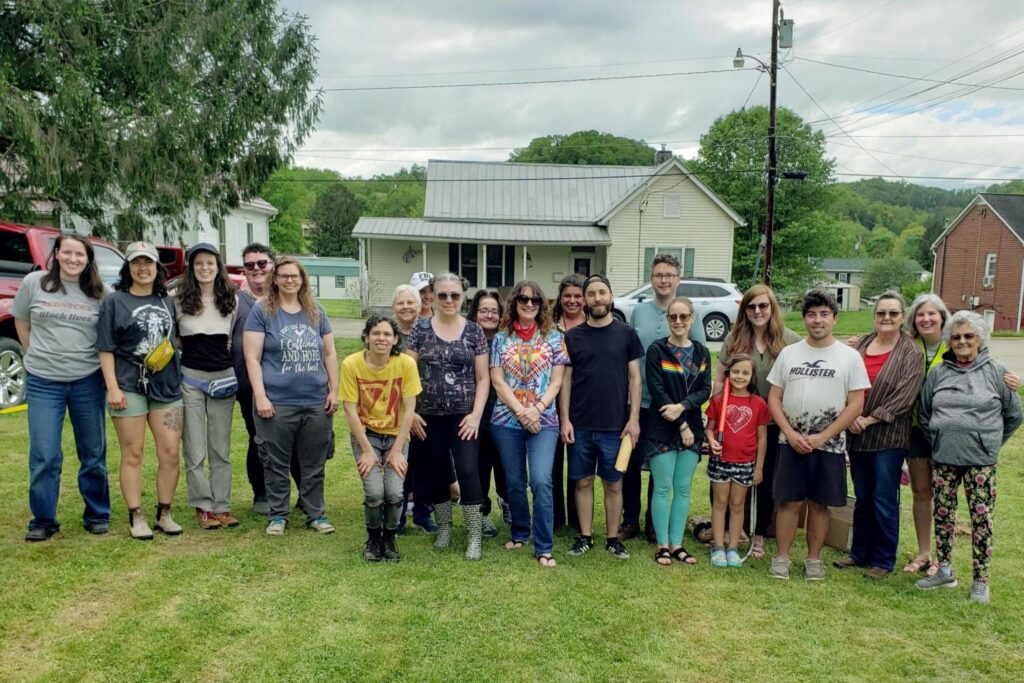BUCKHANNON – The West Virginia Counties Risk Pool is now offering liability coverage to municipalities and volunteer fire departments in the Mountain State.
A representative from the W.Va. Counties Risk Pool on Thursday attended the March 5 Upshur County Commission meeting to deliver a status update on the pool and discuss the range of services they offer.
Vivian Parsons, public entity specialist with the W.Va. Counties Risk Pool, said the Upshur County Commission utilizes the pool for property liability and workers’ compensation.
According to its website, WVCoRP is a comprehensive risk management program designed to address any potential sources of risk for counties and other entities.
“We have 50 of the 55 counties now, and we have about 112 authorities, PSDs, Solid Waste Authorities, ETAs, different county agencies and about a year-and-a-half or two years ago, the Board of Directors voted to allow us to write proposals for volunteer fire departments, so we are now open to proposals for volunteer fire departments,” Parsons said.
She said the most recent change has been extending their services to municipalities – and they have already added one nearby town, Philippi, to the pool.
“Things are going really well; this is our 13th year and financially things are very stable,” Parsons said. “We have gotten our information packets out to all the counties so that we can do your renewal, and we hope to have the renewal back in your hands by the end of March.”
Parsons said she was aware the commission’s budget process begins mid-March and although that would be preferable, she said they are committed to getting it to the county before their budget goes to audit.
“We’re not expecting a lot of difference in the rates for property liability or workers comp,” Parsons said. “We expect very little movement, at most, maybe overall 2 percent but probably less than that.”
She said the pool is stable but there is some legislation pending that could influence the workers’ compensation rate.
“If you follow national news and national trends in insurance, you’ll know that property liability rates are kind of going through the roof right now, and that’s due to so many catastrophic weather events, similar to what just happened in Tennessee, unfortunately,” Parsons said. “Because of the way the pool works, we’re very lucky that we can still keep pricing stable by spreading that across our pool, and we’ve been able to deflect the national trends.”
She said the pool has been able to expand coverage as well by adding cyber security coverage and additional pollution coverage.
“I want to make sure that everybody’s aware of the multitude of resources above and beyond insurance coverage, and that’s one of the ways that we significantly differ,” Parsons said. “One of the ways we significantly differ from commercial insurance is the whole risk management side of the pool.”
She talked about the various trainings the pool offers to its members, including active shooter training and cyber security training.
“One is active shooter training, and that’s a sign of the times that we live in, unfortunately,” Parsons said. “You may be getting it from your law enforcement; some counties have a program already, but we will certainly be willing to fill in the gaps. The second one is the cyber security.”
She said the cyber security training is geared toward regular employees – not the IT department.
“It’s not geared toward your IT people, who are the people who deal with cyber issues, but toward folks like me who sit down at a county computer, and it teaches them where you shouldn’t go, what you should avoid, emails you might see that you shouldn’t click on,” Parsons said. “It’s to help identify commonly-taking-place phishing attempts, social engineering, spoofing, all these things that we hear about, and [how to] to report it.”
She said they also offer sexual harassment training, which they recommend having a couple times a year.
“We’ve all been in this training probably multiple times, and the pool would recommend that you have harassment training on an ongoing basis … every two to three years,” Parsons said. “It’s a good defense mechanism to have in your back pocket.”
Parsons said their bloodborne pathogen training isn’t meant for police or EMTs, but for custodial, upkeep and maintenance staff.
“This is geared more toward your custodial staff – the folks who take care of your courthouse, your parks and recs, people who are keeping county property looking good and taking care of it,” Parsons said. “Unfortunately, we’re finding drug paraphernalia on county property, and these folks do their job, so the first thing that want to do when they see something like that is to get rid of it, so this is about how to do that and how to protect them.”
She said they also offer law enforcement training, such as their defensive driving course.
“We have put a lot of time and effort into our law enforcement training,” Parsons said. “What we would expect to see would be that most of your claims, both workers’ comp and property liability are going to come from your law enforcement side of things. That’s where you have the biggest fleet of vehicles and it’s where you have employees who face the most risk.”
To learn more about what services WVCoRP offers, check out their website here.














